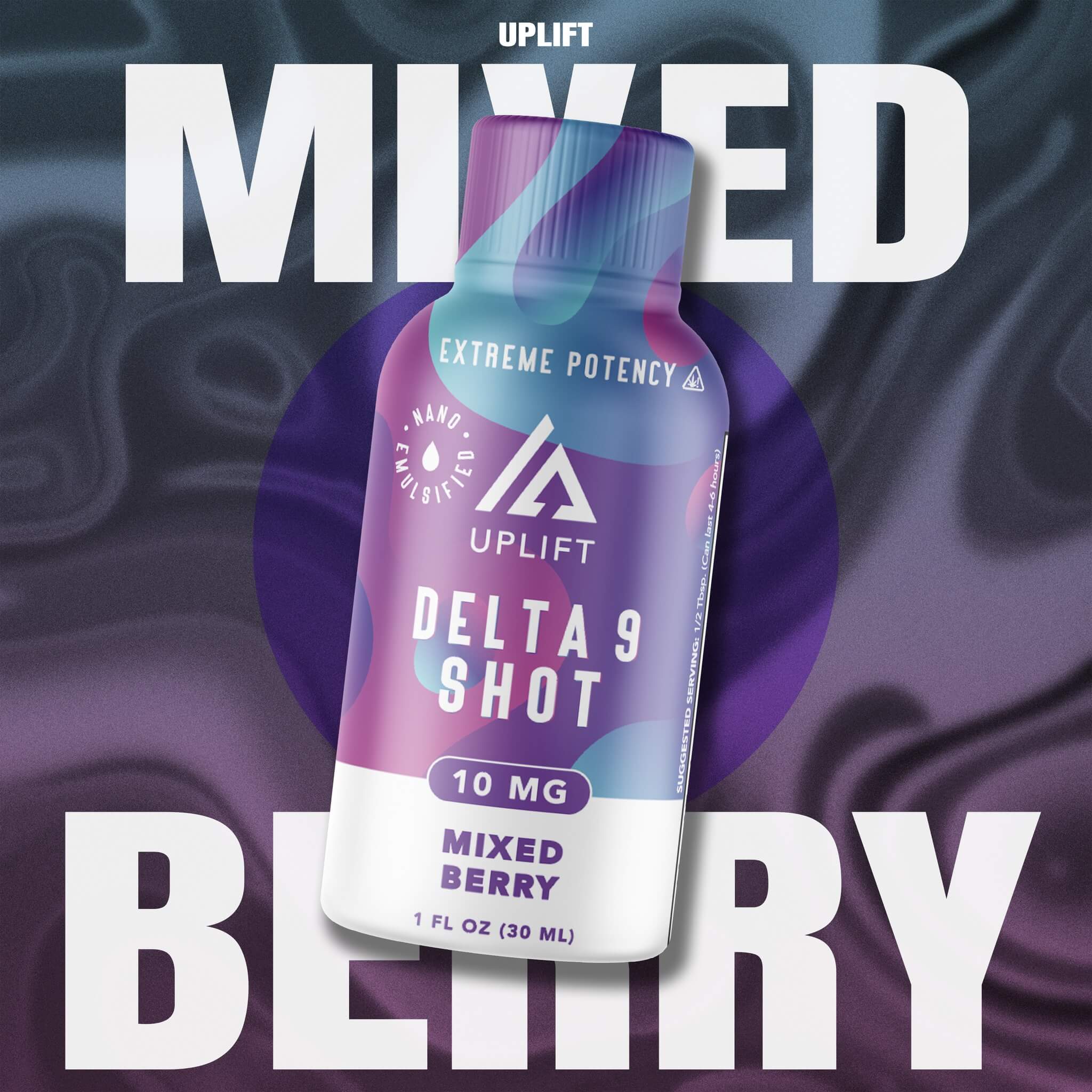Smoking raw cannabis flower is an ancient and popular way to consume the drug. But many people don’t understand why it is so important. The THCa found in cannabis plants is transformed when smoked into delta-9 THC. This compound is responsible for the intoxicating effects of weed.
Learn more about THCa and how it is converted to delta-9 THC in order to get high. You can also learn other factors, such as smoking, that may affect the conversion between the two compounds.
Key Takeaways
- THCa can only create mind-altering effects once it undergoes a process called decarboxylation.
- Initial studies indicate that THCa may offer various health advantages even though it doesn’t cause a high.
- Vaporizing, baking, or smoking cannabis are all ways to change THCa into Delta-8 THC.
GET YOURS HERE!

What Is THCa?
Tetrahydrocannabinolic acid (THCa) is the most common cannabinoid in the cannabis or hemp plant. THCa itself doesn’t make you feel high, but it plays a crucial role in turning into THC, which does.
THCa was discovered in 1995, and recently, it has gained more attention from scientists. In 2017, researchers exploring THCa’s potential health benefits found promising evidence. They learned that THCa could be a helpful way to reduce pain and ease seizures linked to epilepsy or other neurological conditions. Even though THCa is relatively new in our understanding, researchers are excited about its potential benefits.
Decarboxylation
THCa turns into psychoactive THC when it gets heated up, either through burning or vaporizing. This change is called decarboxylation, and it can happen because of:
- Being left out at room temperature for a long time.
- Getting exposed to sunlight.
- Heating up when smoking, vaping, or baking.
THCa has to go through decarboxylation, whether by smoking or some other method, to become THC. This is why just eating raw cannabis won’t make you feel high.
What Is Delta 9?
THCa, also known as THCa, is a chemical formed when THCa is heated. THC is the part of weed that makes you feel high. Different cannabis types have varying strengths based on different factors.
The government needs hemp to have a minimum amount of delta-9-THC. According to the U.S. Department of Agriculture, hemp should not have more than 0.3% THC per gram of dry weight.
It doesn’t matter if the THC is from hemp or marijuana.
What Happens When THCa Is Smoked?
THCa turns into Delta-9 THC when it gets heated or smoked. Decarboxylation is needed to feel the high effects when using marijuana.
The decarboxylation process is crucial in getting cannabis ready to use. High temperatures are used to burn off the acidic molecules on THCa, which is what gives it its “a” name.
Benefits of THCA
Does THCa still have benefits even if decarboxylation was a part of the process that made cannabis psychoactive? Although the cannabinoid has only been around for a short time, early research suggests that it may have anti-inflammatory and neuroprotective benefits. THCa, like all cannabinoids, can also improve balance and overall well-being.
Anti-inflammatory Properties
- THCA shows promise in reducing inflammation associated with:
- Chronic pain conditions: arthritis, inflammatory bowel disease (IBD), Crohn’s disease, ulcerative colitis.
- Neurological disorders: multiple sclerosis, Alzheimer’s disease, Parkinson’s disease.
- Skin conditions: psoriasis, eczema.
- Its mechanism of action may involve blocking pro-inflammatory enzymes and activating anti-inflammatory pathways.
Neuroprotective Benefits
- THCA might protect nerve cells from damage and degeneration, potentially benefiting conditions like:
- Neurodegenerative diseases: Alzheimer’s, Parkinson’s, Huntington’s.
- Brain injuries: traumatic brain injury, stroke.
- Seizures: some research suggests THCA could have anticonvulsant properties.
- Its neuroprotective effects may involve reducing oxidative stress and promoting cell survival.
Other Potential Benefits
- Appetite stimulation: THCA might help individuals with wasting syndromes like cancer cachexia or anorexia nervosa.
- Nausea relief: studies suggest THCA could be effective against nausea and vomiting induced by chemotherapy or other treatments.
- Anticancer properties: early research indicates THCA may slow the growth or spread of certain cancer cells.
Decarboxylation and Impact
- Your point about decarboxylation transforming THCA into psychoactive THC is accurate. However, even decarboxylated cannabis can still contain some THCA, and depending on the processing methods, its levels may vary.
- Therefore, some decarboxylated products might still retain some of THCA’s potential benefits, although to a lesser extent than raw or minimally processed cannabis.
Remember
- Research on THCA is still in its early stages, and more studies are needed to confirm its potential therapeutic effects and safety profile.
- Consulting a healthcare professional is crucial before using any cannabis-derived product, regardless of THCA or THC content.
Potential Side Effects of THCA
We don’t have any information on THCa side effects and risks. The chemical is non-intoxicating. This means that there is no risk of getting high if you consume too much. Once THCa has been converted into THC, side effects are common.
- Fatigue
- Red Eyes
- Dehydration
- Dry Mouth
- Dizziness
THCa has relatively mild side effects, but you should use your own judgment to decide whether or not to consume it. Both hemp and marijuana have a lot to teach us.
How to Use THCa
THCa can be consumed in many ways and converted to THC or ingested separately. THCa is preferred by some experienced users who can handle high-potency concentrates. These crystal products can be vaporized or dabbed alone or with other concentrates and flowers.
Raw cannabis can also be consumed or juiced to obtain THCa. THCa can be used in a protein shake or juice by mixing plant matter. Some people add THCa to sauces and salad dressings to give them a more earthy flavor.
Remember that raw cannabis won’t get you high until you smoke it.

Methods of converting THCa into Delta 9
Vaporizing
The process of vaping cannabis involves heating cannabis flower or extracts to temperatures high enough to release cannabinoids, but not to the point of combustion.
Conduction heating is a process that helps decarboxylate THCa while preserving more sensitive terpenes, cannabinoids, and other compounds. Lower vaping temperatures provide a unique and more enjoyable flavor profile. The terpenes in cannabis are not burned away, so the taste and effects can be enhanced.
Vaping can also be considered safer than smoking because it reduces the amount of carcinogens and combustion byproducts that damage the lungs.
Cooking
Smoking is not the only alternative. Cooking with marijuana and infusing it into edibles are also options. Decarboxylation is a necessary step for every cannabis edible recipe. In most cases, baking cannabis flowers at low temperatures will activate the THCa to THC. Once the flower has been converted, it can be used in recipes such as weed brownies and gummies.
When cooking with cannabis, potency and dosage are important factors to consider. The effects of edibles last longer and take more time to start than those from smoking or vaping. It is therefore important to start with lower doses and then increase them gradually after 2-3 hours.
The Bottom Line
Smoking is a way to convert THCa via decarboxylation into Delta-9 THC. THCa is not psychoactive, but it can be converted to THC by heating or smoking. Delta-9 products can be used to skip the smoking of THCa.
Consider exploring products from Uplift CBD for your THCA and delta 9 needs.
THCA Products We Offer


